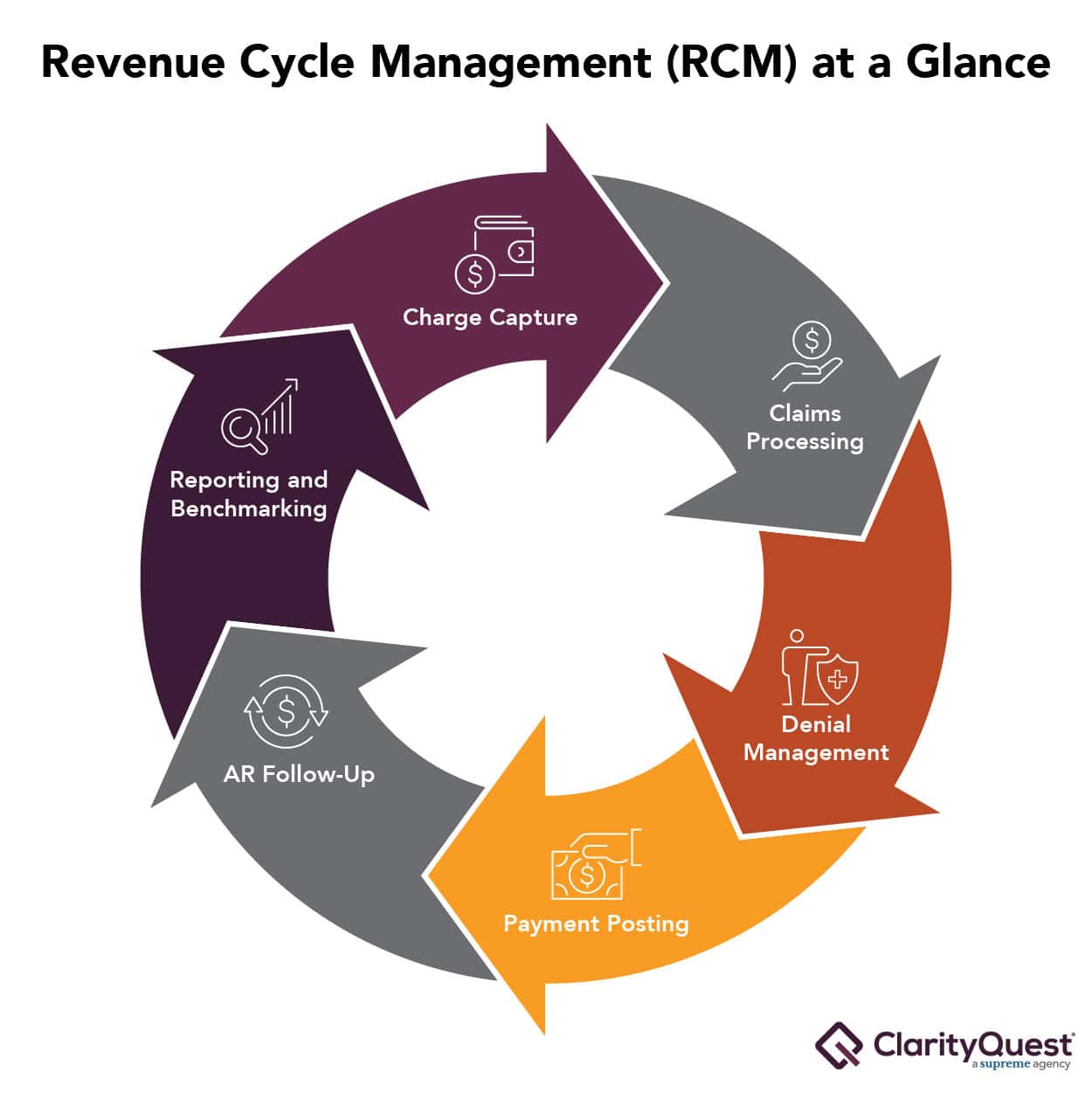1. Implementing a defensive RCM strategy.
It’s no secret that all healthcare organizations not only aim to but need to increase revenue in 2023. To accomplish this, organizations have realized that having a defensive RCM strategy is crucial to keeping a healthy bottom line.
A common first line of RCM defense is reducing denied claims. According to the 2023 Part B News Predictions Survey, 51% of respondents said they planned to be more aggressive in challenging denied claims in 2023.
“Getting more aggressive” not only means setting up dedicated RCM teams and systems to defend and resolve denied claims but preventing denials from ever occurring. Organizations can prevent denials by improving the accuracy and quality of their medical coding.
2. Using AI-powered outsourced medical coding services.
The need for a more defensive RCM strategy combined with ongoing labor shortages has left many healthcare organizations outsourcing portions, or sometimes all, of their medical coding.
While this practice isn’t exactly new, the use of artificial intelligence by these outsourced vendors is. AI-driven medical coding technology, used by companies such as Fathom, can guarantee certain levels of accuracy and quality with a quick turnaround time.
Organizations can use these AI-powered solutions across various use cases. One common practice is outsourcing a portion of their more routine coding to give their in-house staff the breathing room needed to focus on more in-depth cases. Because this approach provides staff space to ensure the accuracy of their work vs. being overwhelmed by a large workload, they can prevent denied claims from ever occurring.
Another use case for AI medical coding technology is tackling coding backlogs. Many organizations have a coding backlog, which directly affects how quickly they receive reimbursements. Similar to the other use case mentioned above, AI solutions can handle a portion of ongoing medical coding activities so existing staff can work on eliminating their backlog and optimizing workflows.
3. Prioritizing coding education for physicians.
Some healthcare organizations rely on their physicians to do the bulk of their medical coding, especially those participating in value-based care programs. However, if the physician isn’t properly educated on how to do so, they may continually make mistakes that lead to denied claims.
We all know that physicians are BUSY, so asking for more of their time to attend an educational session will probably be a hard sell. However, it is necessary if their clinical documentation needs improvement.
4. Gaining a deeper understanding of payers’ rules.
Different payers have different requirements. Some may have speedy filing deadlines, and some may be more relaxed. Whatever the case is, healthcare organizations that care about receiving quick reimbursements and not receiving denied claims should know their payer mix inside and out.
Organizations would benefit from regularly monitoring their payers and staying on top of their latest policies to reduce the chances of denials.
5. Treating patients as consumers.
For many Americans, receiving care can become expensive fast. To keep monthly premiums low, it’s become more common for patients to opt into high-deductible plans. Because of this, many patients choose to shop around for the best value and experience before committing to a specific provider or location.
This means organizations need to step up their game if they want more patients.
Many healthcare organizations have implemented engagement strategies to meet these new patient needs that give patients more power over their care experiences and insight into payments.
From an RCM professional’s perspective, they may need to modernize their billing and collections workflow to provide patients with the information they want regarding their financial responsibilities in a timely manner.





